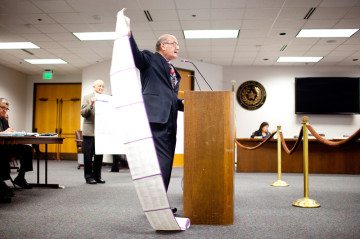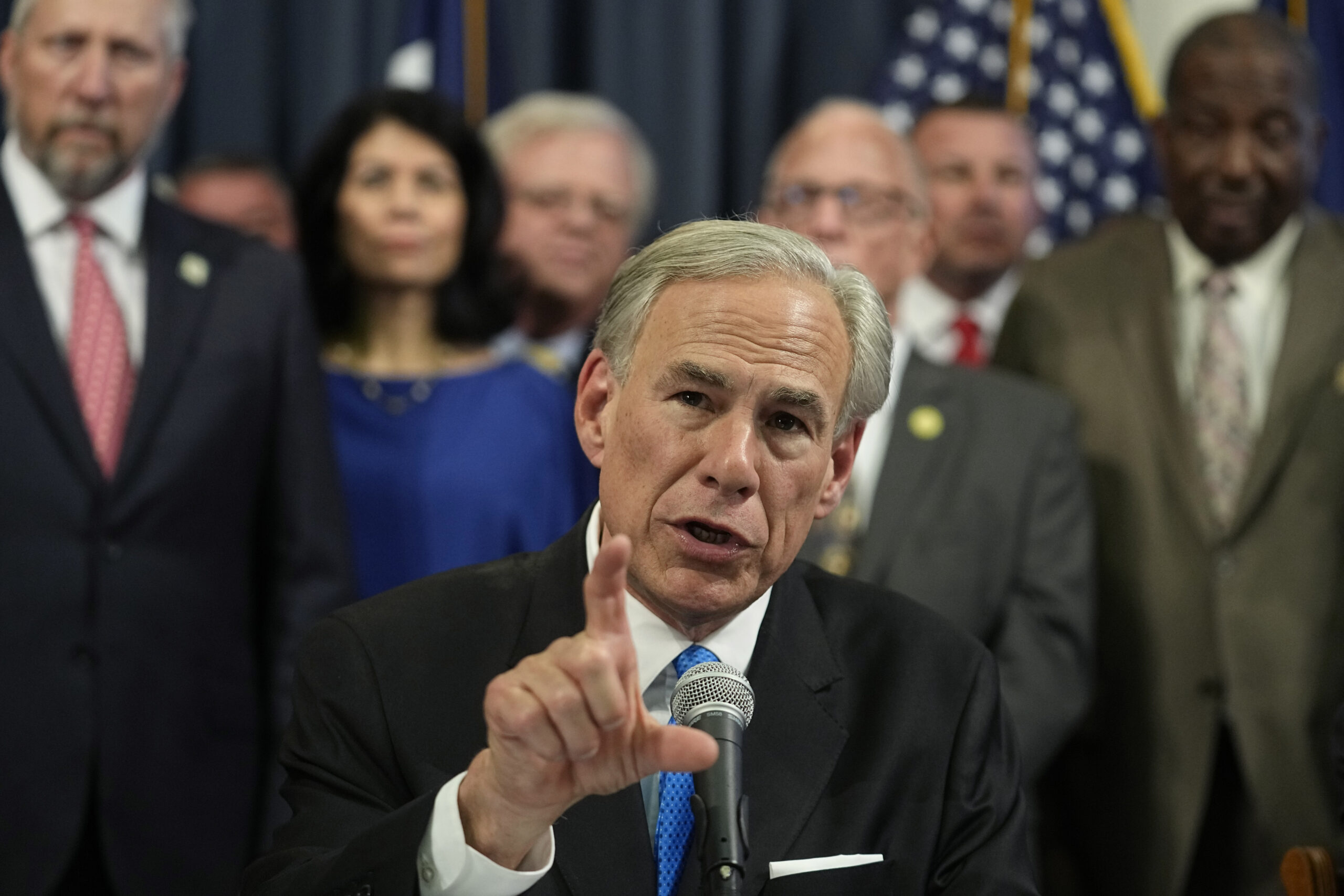
Critics Fear New Texas Law Giving SBOE Wide Discretion Over Textbooks
Texas lawmakers just gave the State Board of Education more power over textbook content. What could possibly go wrong?


In past legislative sessions, a bill this momentous would have been major news. But in the “worst Legislature ever,” it received almost no press coverage at all — elbowed out by bathrooms, vouchers, “show me your papers” legislation, religious freedom carve-outs and new restrictions on abortion.
Senate Bill 801, authored by Senator Kel Seliger, R-Amarillo, and signed into law by Governor Greg Abbott on June 9, gives the controversy-plagued State Board of Education (SBOE) the authority to reject textbook content it deems not “suitable for the subject and grade level for which the instructional material was submitted.” That may not be as innocuous as it sounds.
Seliger has said that his measure is “not intended to create another ideological battleground,” but to ensure that textbooks are “acceptable from an academic point of view.” Indeed, the law does mandate that textbooks be “reviewed by academic experts.” However, it doesn’t require that those experts determine whether content is suitable for students. That determination is left in the hands of partisan, elected board members, who are not required to have any teaching experience or academic training in the subjects they oversee.
Critics worry that giving such wide discretion to SBOE members will be detrimental to Texas’ 5.3 million public school students.
“It kind of scares me,” said Representative Alma Allen, a Houston Democrat who previously served as an SBOE member, in a May 18 House committee hearing. Allen warned that SB 801 “allows members of the board to inject their own ideology or reject a book for other reasons.”
Before 1995, the SBOE had sweeping authority over textbook adoption and sometimes used that power to demand that publishers change content for ideological reasons. For instance, a report from the left-leaning Texas Freedom Network notes that the board once “pressured a publisher to replace a photo of a woman carrying a briefcase with another showing a woman putting a cake in the oven.”
However, in 1995, the Legislature stripped the SBOE of much of its power over textbooks. Since then, the 15-member board has only been able to reject textbooks that contain factual errors, fail to satisfy at least half of the relevant state curriculum standards, or don’t have quality binding.
SB 801 restores some of the power the SBOE lost in 1995.
“We might as well call this the State Board of Textbook Censorship now,” said Texas Freedom Network President Kathy Miller in a press release. The SBOE, she fears, “will use [SB 801] to force publishers to remove or change any content they don’t find ‘suitable’ simply for personal or political reasons. This will turn already contentious textbook adoptions into an even bigger circus and embarrassment for Texas than they already are.”

The board is dominated by conservative and religious right Republicans who’ve drawn national attention and ridicule for their enthusiasm for culture wars. Board members have pushed for students to be taught that the United States is a Christian nation, attempted to smuggle creationism into the biology curriculum, advocated teaching third graders that taxes and regulation are detrimental, and tried to minimize the role slavery played in causing the Civil War.
But members of the board say the additional power will allow for a more robust conversation about what students are learning throughout the state.
“There have been several instances recently of textbooks … whose materials raised concerns with both the public and our textbook reviewers,” SBOE Vice Chair Marty Rowley, R-Amarillo, told the Observer by email. “Now that the inquiry is broadened to include suitability for age and grade levels, there should be a more thorough discussion of what’s inside the book and not just how it is bound on the outside.”
Dan Quinn, a Texas Freedom Network spokesperson, notes that board member Barbara Cargill, R-The Woodlands, “has already made clear she and her colleagues will use that [suitability] provision to reject textbook content they don’t like.” Quinn points to a recent article in which Cargill said the board should be able to object to content it finds “in poor taste.”
Rowley calls such worries “unfounded and out of touch with the current makeup of the Board.” The SBOE, he says, “is not nearly as driven or divided by ideological positions as we once were,” and is “more concerned about making more qualitative, and less political, decisions in approving or rejecting textbooks.”

It’s true that SBOE Chair Donna Bahorich, R-Houston, has steered the board in a more moderate direction since she took the helm in 2015. Take, for example, the board’s unanimous rejection of an error-filled Mexican-American studies textbook in 2016, or its recent decision to remove a high school biology standard that required students to question evolutionary theory. However, the ideological makeup of the board can shift dramatically from one election cycle to the next. (Board members serve staggered four-year terms; seven of the 15 members will be up for reelection in 2018.)
SB 801 also gives SBOE members discretion over a wide range of topics, from sex education to evolution.
In a May hearing, Representative Joe Deshotel, D-Port Arthur, asked Texas Education Agency General Counsel Von Byer whether SB 801 would allow the board to reject content that dealt “with gay and lesbian children and their rights.”
“I think that would be correct,” Byer responded. “As a decision-making body, [the SBOE] would determine what constitutes suitability.”
Another example is the science curriculum — a perennial target of evangelicals. Will board members use the new suitability standard to veto textbook content that presents evolution as well-established scientific fact?
Rowley responds to such concerns by noting that board members rely on input from many voices — not only “classroom teachers, education professionals, curriculum specialists and college professors,” but also “volunteer groups made up of parents, concerned citizens and any other interested stakeholders.” This broad range of opinion has in the past “carried great weight with the board,” he said. “I don’t see that changing as a result of the passage of this measure.”
In fact, the board has sometimes given the views of ideological groups more weight than input from educators and academics. During the 2014 social studies textbook adoption, for instance, several board members made much of Islamophobic textbook reviews from the conservative grassroots group Truth in Texas Textbooks, despite the fact that all but one of the group’s textbook reviewers lacked academic credentials in the relevant social studies fields.
How the board will actually use its new power remains to be seen. The first real test will come in 2019 and 2020, when the board begins the process of adopting new health textbooks. Since the health curriculum also covers sex education — a perennial target of the religious right — that adoption process should show whether critics’ fears of ideological censorship are justified.
Much depends on how the board fleshes out the new suitability criterion in board rules after the law goes into effect September 1. Board members could allay fears of censorship by adopting rules that delegate suitability determinations to educators and academic experts.
Whether that comes to pass, the board’s new power over textbook content will likely mean more controversy, not less. Stay tuned.


